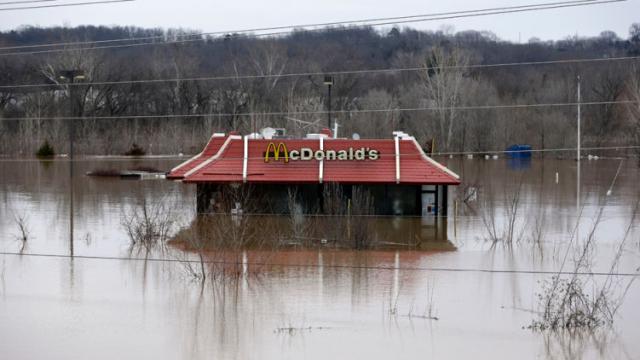Barring some incredible new carbon capture technology, the window for limiting global warming to less than 1.5C appears to have closed. That’s the stark conclusion of a report out in Nature today, which finds that the carbon reductions pledges penned into the Paris Agreement are ridiculously inadequate for keeping our climate within a safe and stable boundary.
Earth’s future. Image: Jeff Robertson / AP
The Paris Agreement — a historic piece of climate change policy adopted by leaders of 195 countries last December — pledged to limit human-caused global warming to less than 2C, with a “stretch goal” of keeping our planet’s thermostat from rising more than 1.5C. We’re supposed to do that by aggressively cutting back on fossil fuels and switching entirely to renewable energy sources by the end of the century.
But as climate scientists and well-informed politicians have been saying for months, global carbon emissions are way off track if we want to meet even the 2C goal. Just how off track is the subject of the new analysis, led by Joeri Rogelj at the International Institute for Applied Systems Analysis.
In addition to concluding that “the window for limiting warming to below 1.5 degrees C with high probability and without temporarily exceeding that level already seems to have closed”, the study found that the pledges outlined in the Paris Agreement will likely see global temperatures rise 2.6 to 3.1C by 2100. A 3C uptick in global temperatures could cause sea level to rise up to 6m over the next few centuries, displacing hundreds of millions.
Low-lying island nations, which area already drawing up relocation plans in preparation for the inevitable, fought long and hard to get the 1.5C target included in the Paris Agreement. Recently, marine biologists have also been raising their voices, reminding the public that coral reefs around the world will experience catastrophic collapse if we exceed this threshold.
The fact that we’re moving so quickly in the wrong direction ought to be a wakeup call.
[Nature via Climate Change News]
